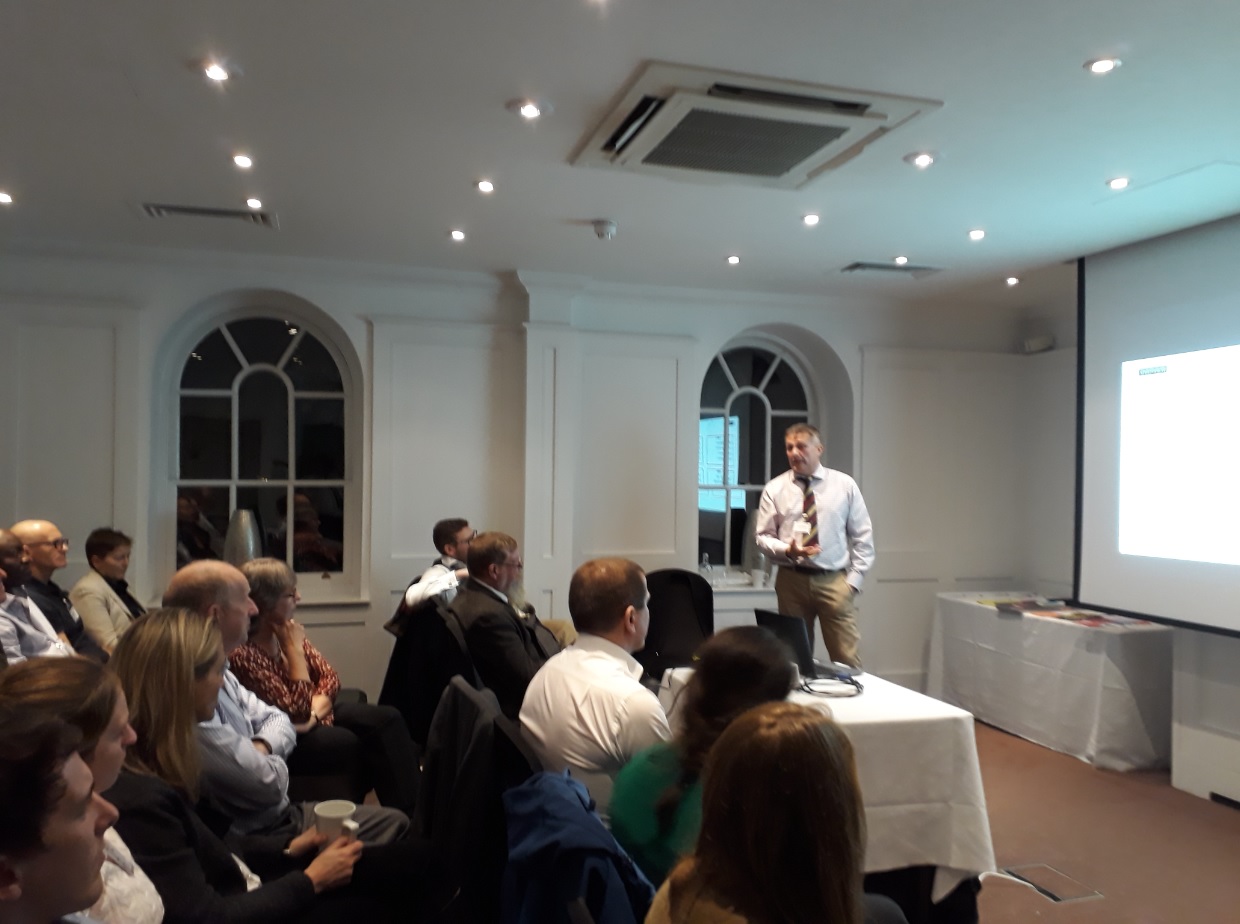Ten Tors: Planning, organisation and incorporation of lessons learnt.
The 10 Tors is an annual weekend challenge undertaken on Dartmoor in early May. The distance travelled is either 35 miles, 45 miles or 55 miles and is undertaken without outside assistance by 2,400 teenagers in 400 teams of six; teams must be self-sufficient, carrying all that they need to complete their route and stay out overnight safely. There is also the Jubilee Challenge undertaken by young people aged between 14 and 21 with a range of challenging conditions, with assistance being provided as required. Participants enter as individuals or teams and complete one of several routes suited to their abilities.
In a presentation hosted by the Cornwall, Devon and Somerset Chapter of the SWWE Branch, Major Dave Pickering outlined the evolution of the of the 10 Tors from 1960 to the present day. He stressed that the event is not a race, but a challenge to be faced by all participants. The entrants themselves represent a range of schools and other organisations and in 2018 the breakdown was:
- State Schools: 72 teams
- Independent Schools: 33 teams
- Cadets: 30 teams
- Scouts: 46 teams
- Other TTCs: 30 teams
- Jubilee Challenge @ 30 teams
He provided an overview of the planning for the event, planning which he is already looking forward to the next two to three years.
The planning had to account for:
- 2,800 participants
- 2,000 team staff
- 1,000 enablers
- 6,000 spectators
Although the event is held on the Dartmoor Military Training Area (@ 20km x 15km), there are a large number of landowners who have given permission for use of their land for the Challenge and also a significant number of organisations that are involved to provide support and assistance. Dave was keen to point out the need for the building and management of relationships with all stakeholders, as without their support it would not be possible to run the event in the form that it is now.
As well as providing a unique opportunity to young peapole, the event is regarded as beneficial in providing training to the military and other organisations as well as allowing a wide level of engagement and engagement – as Dave pointed out throughout his presentation – it’s all about relationships.
The training for the participants and support personnel was vital as Dartmoor weather is very changeable and the moor itself is extremely unforgiving. Contingency planning included a ‘global evacuation’, only called by the Event Manager in exceptional circumstances e.g. sustained bad weather but must also cover the need for a limited evacuation due to individual illness/injury.
 Dave displayed a ‘synchronisation matrix’ which included decision points and input from the Met Office; the level of detail was remarkable, down to the minute in some cases.
Dave displayed a ‘synchronisation matrix’ which included decision points and input from the Met Office; the level of detail was remarkable, down to the minute in some cases.
Participants were tracked to ensure that they kept to their planned routes and avoided sensitive areas e.g. rare bird nesting sites.
Risks were captured in a Risk Matrix and were reviewed as they were captured and sent for action to the ‘risk owners’ and for information to others where appropriate.
Lessons Learnt were captured as early as possible and prioritised. There were some 200 lessons learnt per year on average and the prioritisation allows resources to be applied to the best effect. Anyone can raise an issue for addition to the LL register. Dave believed that the LL process was improving, with a greater emphasis being given to closing out actions and accountability for management of the actions. One are he noted was that, where appropriate, lessons learnt actions are cross-referenced with any instructions to provide a clear trail between them.
Dave was thanked for his interesting and informative presentation and for his willingness to address the number and range of questions put to him.
This presentation can also be viewed on APM slideshare.
Julian Harris
Co-Chair, SWWE branch, Cornwall, Devon and Somerset Chapter

0 comments
Log in to post a comment, or create an account if you don't have one already.